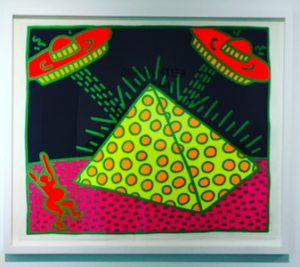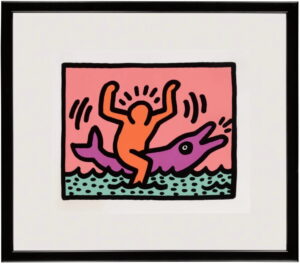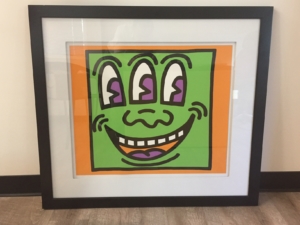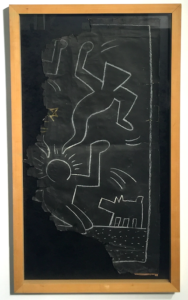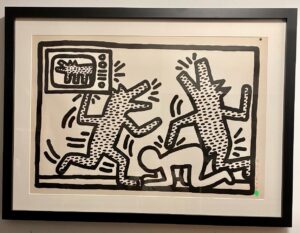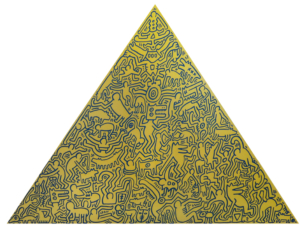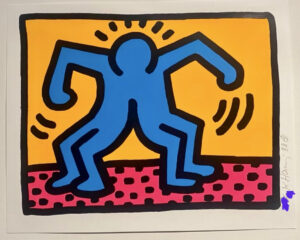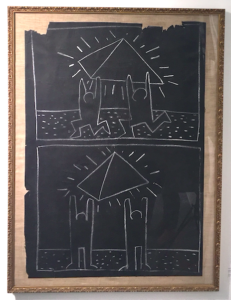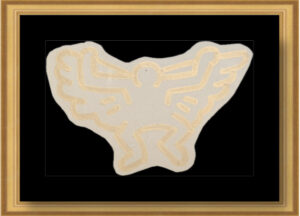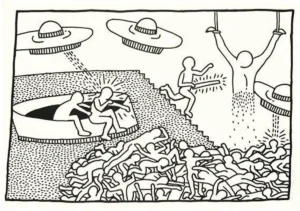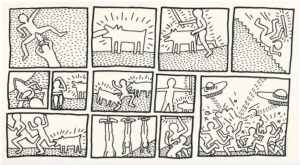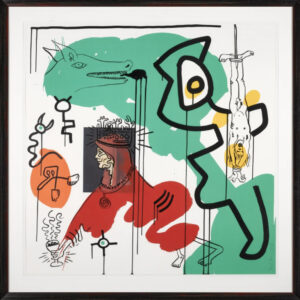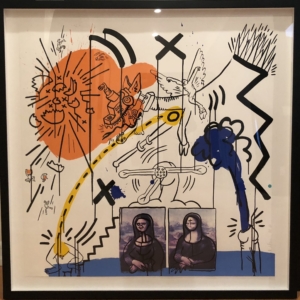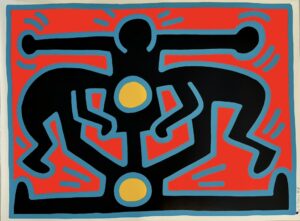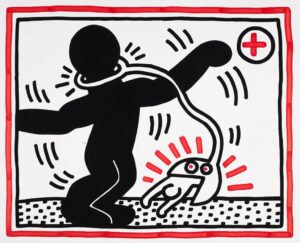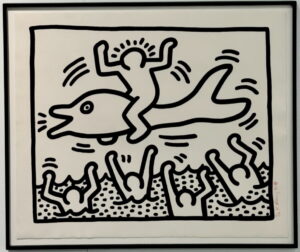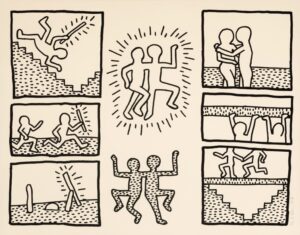Icons (Five Screenprints), 1990
From an edition of 250
Each signed by Julia Greun, Excutor and editioned in pencil, verso lower right; publisher's chop mark, lower right
21 × 25 inches (53.3 × 63.5 cm.)
All works are inspected prior to delivery, work will be sent out tracked and insured at buyers cost. If you'd like to make specific arrangements or discuss collection then please contact us directly.
Accepted: Wire transfer
ART PLEASE Assurance Policy: Every ART PLEASE seller has been approved by ART PLEASE after a thorough review. All of our sellers are required to accept the following ART PLEASE policy: A buyer may return an item purchased through ART PLEASE, if the item received is not as described in its listing, or is found to be unauthentic.
Keith Haring was a pioneering American artist whose bold, graphic visual language helped redefine contemporary art in the 1980s. Deeply influenced by street culture, graffiti, and pop art, Haring created a distinctive aesthetic rooted in vibrant color, dynamic linework, and universal symbols. His work carried a powerful social message, addressing topics such as AIDS awareness, apartheid, drug addiction, and LGBTQ+ rights. Haring’s accessible style and commitment to activism made him a cultural icon, blurring the lines between high art and public space. Even after his death in 1990, his legacy continues to resonate through his art’s simplicity, energy, and humanism.
Icons (Five Screenprints), created in 1990 and published posthumously, is a portfolio that encapsulates the essence of Haring’s most recognizable imagery. Each screenprint is embossed on wove paper and features iconic motifs—such as the radiant baby, barking dog, and dancing figures—that became visual shorthand for Haring’s worldview. Signed on the verso by Julia Gruen, the executor of Haring’s estate, and editioned in pencil with the publisher’s chop mark, these works maintain both authenticity and rarity. Measuring 21 × 25 inches, each print combines bold forms with symbolic content, celebrating the artist’s enduring influence while memorializing his vibrant contribution to the cultural landscape. The Icons series serves as a powerful testament to Haring’s vision of art as a tool for joy, protest, and connection.

